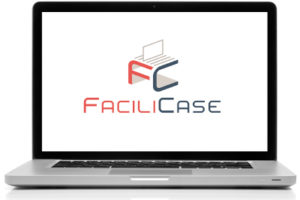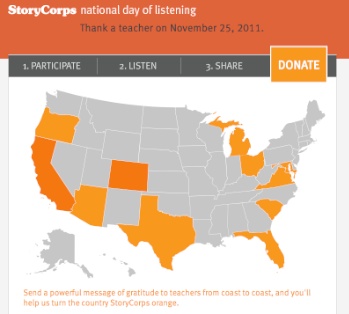Notification of Funding Availability (NOFA)
Request for Initial Proposal Ideas ACR JAMS Foundation Partnership Regular Year One – 2016
The Association for Conflict Resolution (ACR) is pleased to announce this Notification of Funding Availability (NOFA) and request for initial proposal ideas for the 2016 funding cycle of the ACR/JAMS partnership in supporting Conflict Resolution Education. The mission of the ACR/JAMS partnership is summarized below.
Mission: The population to be served by the funding streams will be (1) youth in preK-12 age range and/or (2) adults working with these youth populations in ways that directly transfer CRE skills for adults to the youth populations. Funding Contexts: The contexts for projects may be a variety of contexts including community, schools, alternative education (online education, charter schools, after school programs), government (juvenile justice facilities, courts) and NGO settings. While some proposals may be able to secure and guarantee access to or cooperation from traditional K-12 school districts/schools, we are excited by opportunity to support possible funding of CRE work from other contexts. Thus, projects in pre-K-12 schools will be considered but emphasis will be on projects outside that context.
The NOFA Area: The funding focus for the 2016 funding cycle intends to support projects that advance the development, implementation, and /or assessment of conflict resolution education serving youth living in or attending school in structurally disadvantaged neighborhoods or communities.
For purposes of this NOFA structurally disadvantaged neighborhoods or communities may include social environments lacking in two or more of the following:
• Access to sustained and sustaining employment,
• Affordable, adequate, stable and safe housing,
• Adequate healthcare
• Access to affordable and nutritious food,
• Access to affordable digital communication
• Affordable and efficient transportation
• Collective efficacy or ability to exert deliberative power in municipal decision-making. [1]
Conditions of structural disadvantage may correlate with policies and practices that lead to conflict around race, religion gender, sexual orientation, financial means, and immigration status.
Proposals may address the needs for culturally competent conflict resolution educational (CRE) programming in and for communities experiencing divergent outcomes in school discipline, disproportionate referrals to the juvenile/criminal justice systems, and heightened barriers to re-entry from those systems to schools and community. For example, projects could:
serve youth affected by:
· Disparate impact from policing and school disciplinary practices in structurally disadvantaged communities
· Unjust aggression based on race, religion, culture, or LGBTQ, immigration status, or economic status
· Cultural conflict or isolation,
through programs teaching and using conflict resolutions processes incorporating
· Restorative practices or
· Community dialogue,
in order to
· Increase awareness and empathy
· Acknowledge and honor identity
· Reconcile, restore and strengthen relationships
· Fulfill individual and institutional capacity to contribute to the learning community.
Preference will be given to programs that exhibit the ability to be scalable or replicable on a national level.
Funding Parameters and Criteria for the 2016 Funding Cycle
· The JAMS Foundation estimates awarding up to $100,000 in new awards for the 2016 funding cycle based on ACR review and recommendations. ACR will also monitor grant progress post-award.
· Requests for funding can range from $15,000 to $50,000 per year of funding. In special circumstances projects requesting more than $50,000 per year may be considered. We are looking to recommend a small number of high quality projects with proven impact and the potential of regional and national impact upon completion.
· The proposed projects can be one or two year projects, but decisions on funding for a second year will be contingent on evidence of benchmark accomplishments at the end of the first year of funding.
· Preference for funding is given for Development and Innovation projects – bringing exciting new ideas to fruition. A secondary emphasis is on Expansion grants that enable an already developed pilot project to be taken to national rollout.
· Eligible organizations include nonprofit 501(c)3 organizations, educational institutions, and public agencies.
RFP Project Process
· Interested organizations or individuals are required to submit a 1-2 page Initial Project Idea description (using the guidelines on the following page) to ACR no later than midnight (EST) Monday, March 28th to admin@acrnet.org.
· The ACR Grant review committee will notify applicants if they have been selected to develop a full proposal for submission and review by Friday, April 29th.
· Full proposals (with a required application protocol provided upon notification) will be due to the ACR Grant review committee by Thursday, June 30th.
· Funding decisions are anticipated at the August 2016 JAMS Foundation Board meeting.
· It is anticipated that notifications of the final decision will be made in late August – early September and made public at ACR’s Annual Conference, September 28 – October 1 in Baltimore, MD.
Please address questions about grant program to the Co-Chairs of the JAMS/ACR Grant Steering Committee, Bryan Hanson at bryanhanson@creighton.edu or Dr. Phyllis Hildreth at pdhildreth@lipscomb.edu.
===========================
Initial Proposal Ideas Description
Please submit an initial proposal idea description as a .pdf document of no more than 2 pages (single spaced, 12-point font, 1 inch margins). Please include the following information in your description. Please note, incomplete submissions and those which do not adhere to the specifications will not be considered.
Applicant Information:
1. Organization Name/Address
2. Organizational Contact Person (and necessary contact information)
3. Organizational Type (educational institution, LEA, HEI, NGO, etc.)
4. Organization’s Previous Experience in Serving Special Needs Populations (only 1-2 paragraph)
5. Organization’s Previous Work in Conflict Resolution Education (only 1-2 paragraphs)
Project Description:
In your 1-2 page description of the project please discuss the following:
1. Describe the population to be served and your organization’s access to that population
2. Describe the nature of the proposed project and the need for this project (what are the important benefits to be obtained if the project is funded)
3. Describe the uniqueness of this project – to what extent is this groundbreaking or innovative work
4. Describe your organization’s expertise and qualifications to do this work
5. Discuss the key personnel in the project and their qualifications for involvement
6. Indicate the general amount of funding requested for Year 1 (and for year 2 if relevant) and a general description of what that funding will be used for.
7. Discuss additional sources of funding or in-kind support already obtained for this project or for foundational work in this area.
8. Suggest how you would measure or assess the success or impact of this project if funded.
Please submit an e-copy .pdf document of the Initial Project Ideas Description no later than midnight (EST) Monday, March 28th to admin@acrnet.org
Prior to submission, questions may be addressed to Bryan Hanson at bryanhanson@creighton.edu or 402.280.3365 or Phyllis Hildreth at pdhildreth@lipscomb.edu or 615-966-6680.
JAMS_and_ACR_Grant_NOFA.pdf



